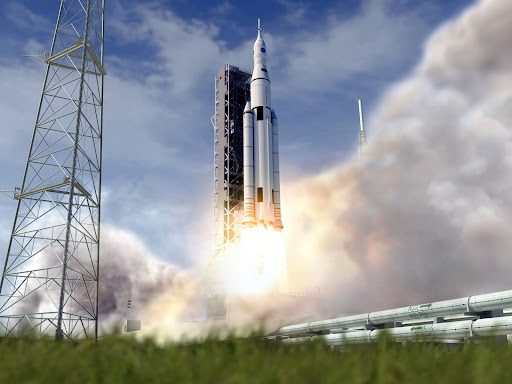
For those excited about space, observation of the latest spacecraft development race is a true pleasure. Rockets get more fascinating each year, and some achievements are really remarkable. Consider the potential of a reusable rocket and its positive impact on ecology and the environment, not to mention we absolutely don’t need more space junk in orbit. Rocket evolution is a thrilling subject to learn about, and we invite you to join us as we recall all the milestones, from a wooden bird to Starship vs Saturn V comparison.
History of Rockets Timeline
Where should we start counting? From the wooden bird made in Greece around 400 BC? Or should we consider Chinese propulsion systems the first rockets? The answer depends not only on what we call a rocket now, it is a cylindrical object that can be launched to a great height or distance by the combustion of its contents, but also on what we include as a subject in the history of rockets in the world. Some information about how modern rockets became what they are and the development of principles of propulsion systems would be also helpful in learning the history of rockets. As such, let’s start with the wooden pigeon made for fun in ancient Greece.
The Pigeon and the Sphere
Archytas, mathematician, statesman, and music theorist constructed the bird that moved propelled by the steam for mere amusement. However, the principle used to move the bird was quite similar to what modern rockets use to fly. Thus, we may say that history had begun right then and there.
Nearly 300 years later, the same principle of steam as a propellant was used by Hero of Alexandria to create an aeolipile – round sphere that moved using the action-reaction principle and is considered a proto-rocket now. That’s a huge stretch in one crucial aspect though; Archytas’s bird and Hero’s sphere were both useless in terms of carrying loads. Both objects’ movements were limited; they were running on the spot. So, let’s move forward to rocket-like objects that actually managed to cover some distance.
Chinese Gunpowder Rocket
Chinese Gunpowder Rocket
When was the rocket invented? Was the Chinese fire arrow the first close to a rocket object that moved using the same principle? Numerous sources, including space news website Orbital Today, believe so. The time of the first mention is disputable though, but for the purpose of a general knowledge boost, we’d just settle at the early 13th century when the first reports were written down.
These rockets were used to move arrows and ‘iron pots’ in needed direction and, obviously, were used for military purposes. In 1264 the first internal-combustion rocket propulsion was mentioned; it was used in a firework called ‘ground-rat.’ Though the Chinese certainly used similar principles to modern rockets use, they didn’t have an engine.
Rocket History 1900-2024: Now It’s Rocket Science!
20th century propelled rocket’s development impressively. From 1902, when A Trip to The Moon was filmed, rocket scientists all around the world worked fast and hard to make the dream come true. What was the first rocket in space and when it happened?
WW2, something we desperately want to leave behind, provided the world with some great developments nevertheless. One of them was the first human-created object to fly above the Karman line, i.e., reach the space. German V-2 rocket MW 18014 was launched in 1944 and attained 176 km distance. From that moment, it was just a matter of time before other countries caught up. When was the first rocket launched by NASA? On January 31, 1958, Explorer 1 took off on Juno I booster, which was technically a rocket.
So, who invented the rocket engine? Dr. Robert Hutchings Goddard is usually named the creator of the engine that is the closest to what we know as the modern rocket propulsion system. The first liquid propellant engine was tested in November 1923, and on March 16, 1926, Goddard managed to launch the first liquid-fuelled rocket.
Overall
Those are just some facts about rockets to encourage you to learn more about one of the greatest achievements of humankind. Future years look very promising for bringing more to the subject as modern science moves forward impressively quickly.
Stay in touch to get more updates & news on Buzz Feed!






